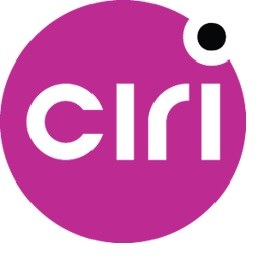Decembre 2023
|
Lundi 04/12/2023 Salle de conf IBCP Séminaire Externe |
« From membrane nanodomains to amyloid assemblies by solid-state NMR » | |
|
|
Dr. Birgit HABENSTEIN (Institut de Chimie & Biologie des Membranes & Nanoobjets (CBMN UMR5248 CNRS) Institut Europeen de Chimie et Biologie (IECB))
Host : C Grangeasse
|
|
|
Lundi 04/12/2023 Salle de réunion M6 Séminaire Externe |
« title tbc » | |
|
|
Dr. Yansong MIAO (Nanyang Technological University, Singapore)
Host : Yvon Jaillais
|
|
|
Lundi 11/12/2023 Salle de conf IBCP Séminaire Externe |
« How bacteria defend against their viruses and how viruses fight back? The tale of CRISPR-Cas versus anti-CRISPR » | |
|
|
Dr. Anne CHEVALLEREAU (CNRS UMR8104 - Institut Cochin, Paris)
Host : C Grangeasse
|
|
|
Mardi 12/12/2023 Salle condorcet Séminaire Externe |
« From Virus-Host Cell Interaction to Developing a Vaccine Against Crimean-Congo Hemorrhagic Fever Virus » | |
|
|
Pr. Ali MIRAZIMI (Unit of Clinical Microbiology, dept of Labortory medicin, karolinska Institute; Senior Expert Scientist, Public Health Agency of SWEDEN)
Hôte : Vincent Legros & François-Loïc Cosset
Crimean-Congo Hemorrhagic Fever (CCHF) is a severe viral illness with a high mortality rate, caused by the Crimean-Congo Hemorrhagic Fever Virus (CCHFV). Despite its severity, the pathogenesis of CCHFV remains insufficiently understood, with the intricate interplay of viral and cellular factors likely contributing to the molecular progression of the disease. Our ongoing efforts to unravel the key steps in this interaction aim to yield crucial insights, potentially unveiling targets for therapeutic interventions. The urgency to develop a secure and efficacious vaccine against CCHFV is paramount to curbing the impact of outbreaks and safeguarding vulnerable populations. A spectrum of vaccine platforms, ranging from inactivated vaccines to genetic and subunit vaccines, is currently under scrutiny. Our focus revolves around pinpointing viral antigens capable of eliciting a robust and protective immune response while minimizing the risk of potential side effects.In summary, as we grapple with the complexities of CCHFV pathogenesis, the pursuit of a comprehensive understanding underscores the significance of identifying potential therapeutic targets. Simultaneously, the race to develop a safe and effective vaccine remains imperative in our quest to mitigate the repercussions of CCHF outbreaks and shield those most susceptible to its severe consequences.
|
|
|
Mercredi 13/12/2023 Salle SDT CRC Séminaire Externe |
« Deltavirus infection in human and animal cells » | |
|
|
Dr. Karim MAJZOUB (Group Leader - RNA viruses and Host Factors; Institut de Génétique Moléculaire de Montpellier; CNRS-UMR 5535 - Université de Montpellier)
Hôte : Bertrand Boson & François-Loïc Cosset
The recent discovery of Hepatitis D (HDV)-like viruses across a wide range of taxa led to the creation of the Kolmioviridae family. Recent studies suggest that kolmiovirids can be satellites of viruses other than Hepatitis B virus (HBV), challenging the strict HBV/HDV-association dogma. Studying whether kolmiovirids are able to replicate in any animal cell they enter is essential for assessing their zoonotic potential. Here, we compared infection by three kolmiovirids: HDV, rodent (RDeV) and snake deltavirus (SDeV) in vitro and in vivo. While SDeV had the narrowest host cell range, RDeV showed the broadest. Confocal microscopy of infected cells revealed nuclear viral hubs with a peculiar RNA-protein organization. Tail vein injection of infectious clones showed that both HDV and RDeV but not SDeV efficiently replicate in mouse liver, forming massive viral hubs. Our empiric comparison lay the foundation for the discovery of specific host factors controlling Kolmioviridaehost-shifting.
|
|
|
Mercredi 20/12/2023 ? Séminaire Externe |
« title tbc » | |
|
|
Dr. Viola WILLEMSEN (Wageningen University) Host : Yoan Coudert
|
|
|
|
|
|
|
|
|
|
|
|
|
|





